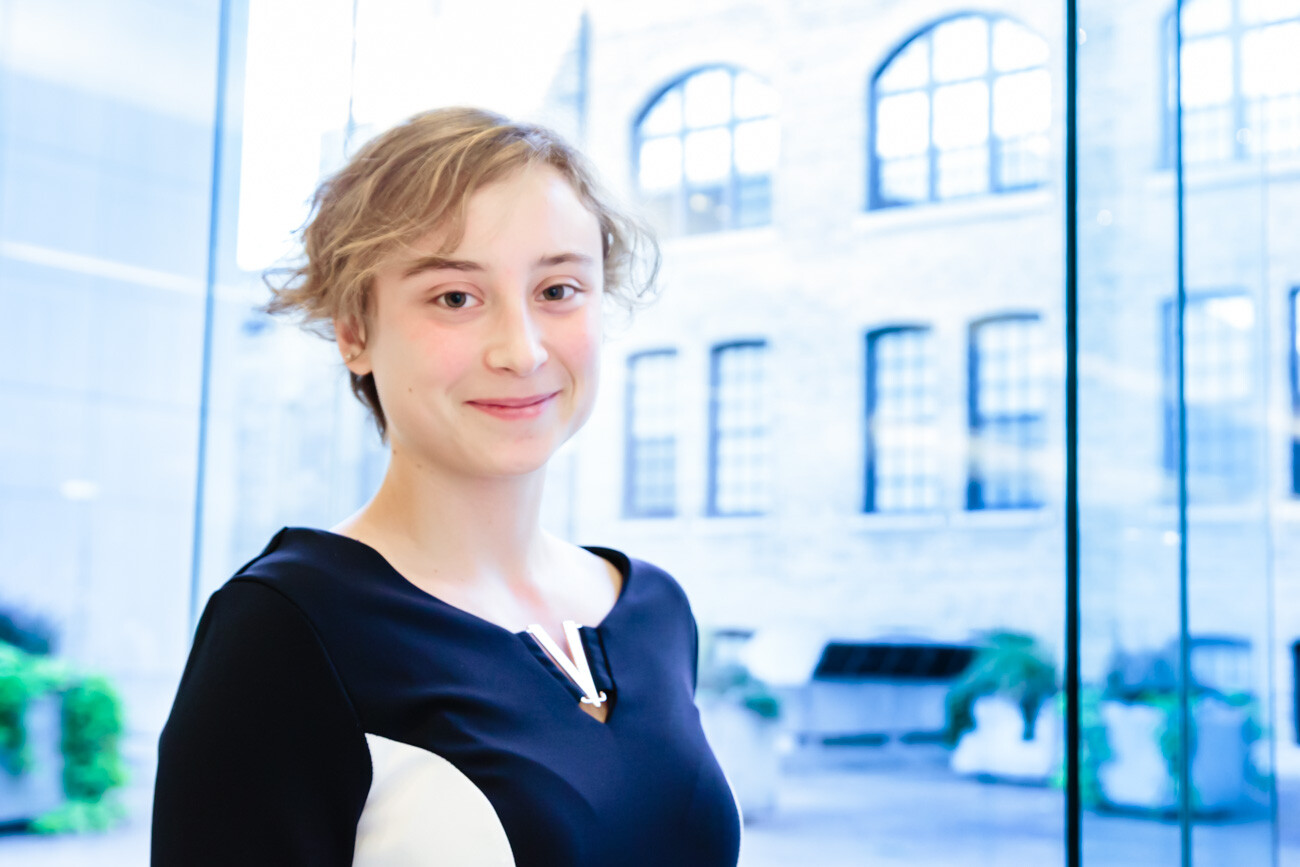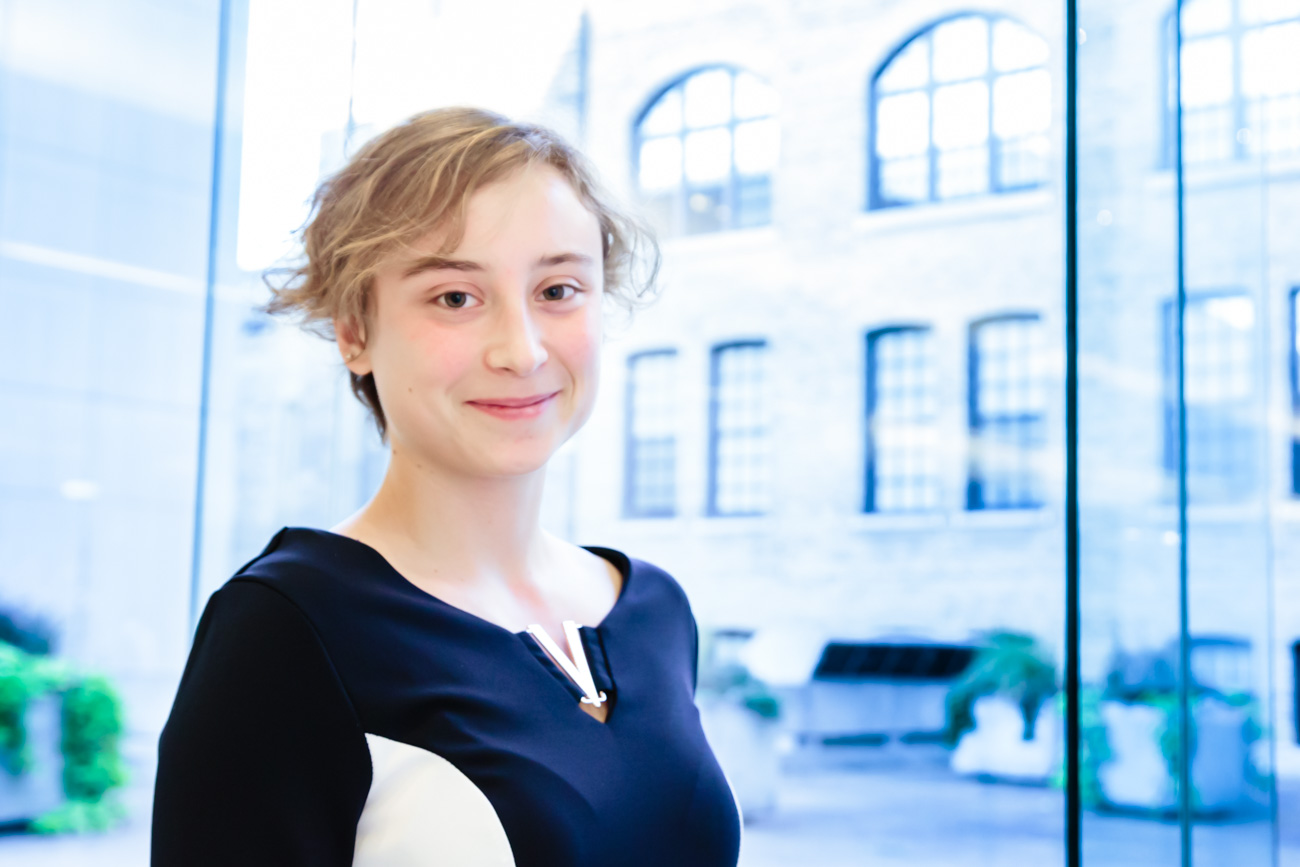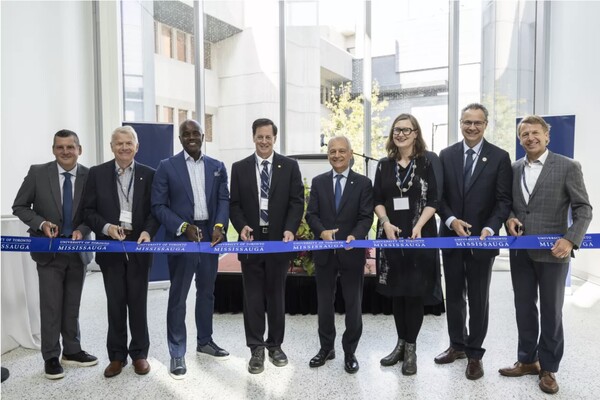
Carolyn Morris
 Though she’s just started her first year of the MD/PhD program, Hannah Kozlowski has already published in major peer-reviewed journals as an undergraduate in Laboratory Medicine and Pathobiology. Kozlowski is the inaugural recipient of the Dean Catharine Whiteside Scholarship for Clinician-Scientists, created by Dr. Terrence Donnelly. She spoke with Faculty of Medicine writer Carolyn Morris about her research and plans.
Though she’s just started her first year of the MD/PhD program, Hannah Kozlowski has already published in major peer-reviewed journals as an undergraduate in Laboratory Medicine and Pathobiology. Kozlowski is the inaugural recipient of the Dean Catharine Whiteside Scholarship for Clinician-Scientists, created by Dr. Terrence Donnelly. She spoke with Faculty of Medicine writer Carolyn Morris about her research and plans.
Tell me about your research experience so far.
My main research has been in HIV. In my undergraduate degree, I was involved in looking for possible inhibitors of HIV infection. In Laboratory Medicine and Pathobiology Professor Donald Branch’s lab, we wanted to see if there was something in crocodile blood that could inhibit HIV infection. Prior research had shown that there’s something about crocodile blood that gives it antibacterial and antiviral properties, so we wanted to find out what it was, if there was something similar in humans, or if we could use it to develop a drug. We found that histones — which are proteins that help package DNA — were present in high quantities in the inhibitory regions of crocodile blood. We also found that human histones can affect HIV infection. This could explain why some people respond to HIV infection differently than others, and it could also be used in HIV treatment, if specific portions of crocodile histones were proven to have anti-HIV activity.
I also did research on Ebola for a short period of time, in the same lab. We were looking at combination drug therapy for Ebola and used a rapid screening assay to test the efficacy of combination therapy with generic drugs in Ebola treatment. For this work we collaborated with researchers from the National Microbiology Laboratory level 4 lab in Winnipeg. Using a combination of generic drugs to treat Ebola was a new approach — and a strategic one. The ability to repurpose drugs for new uses can save patients and the health-care system a lot of money. This is especially important when treating patients in developing countries, where money and other resources are limited. And if an illness is spreading quickly, patients need something that is already readily available.
Why did you decide to pursue an MD/PhD?
As soon as I started in research, through a summer job at Canadian Blood Services, I realized I really loved it. There’s something about being in the lab and knowing that you’re doing something to change future outcomes and really impact people on a larger scale. It was something that grabbed my attention. I also knew I wanted to go into medicine, so I set out to merge the two. I knew the MD/PhD program at the University of Toronto was well established and that U of T had amazing, world renowned researchers. I had also heard great things from students in the program. Plus, the MD curriculum is undergoing a change that really interested me and I was eager to try a new style of education.
What do you hope to focus on for your research in the MD/PhD program?
I’m looking to work in nanodiagnostics. This is where you can take a sample, let’s say blood, and mix in nanoparticles that can detect a certain infectious particle. The sample might turn a different colour if that infectious agent is present in the blood. This has huge potential for rapid, point-of-care testing. When I was at the National University of Singapore, I worked with several leading researchers in the field and I am looking forward to working with leaders at the University of Toronto. There are a lot of cool things happening in the nano field — it’s expanding very quickly and it’s opening up a lot of possibilities. People are using it for numerous fields including cancer treatment, diagnostics and multi-drug resistant infections.
You’re two months into the program now – have there been any surprises?
I am surprised by how much I enjoy the program. I knew, going into the program, that this is what I wanted to do and that it would be a great adventure, but it has been better than I imagined. I have met many upper year students that want to share their experiences, give advice and learn about the new students. The faculty meet with us to facilitate our growth and development as learners — they want to do whatever they can to help us be happy and successful. Also, mentorship is stressed as a crucial component of later career success and the program tries to help us find mentors — both student and current clinician-scientist mentors. In my short time here, I have learned a lot, and much of it has been outside the classroom.

